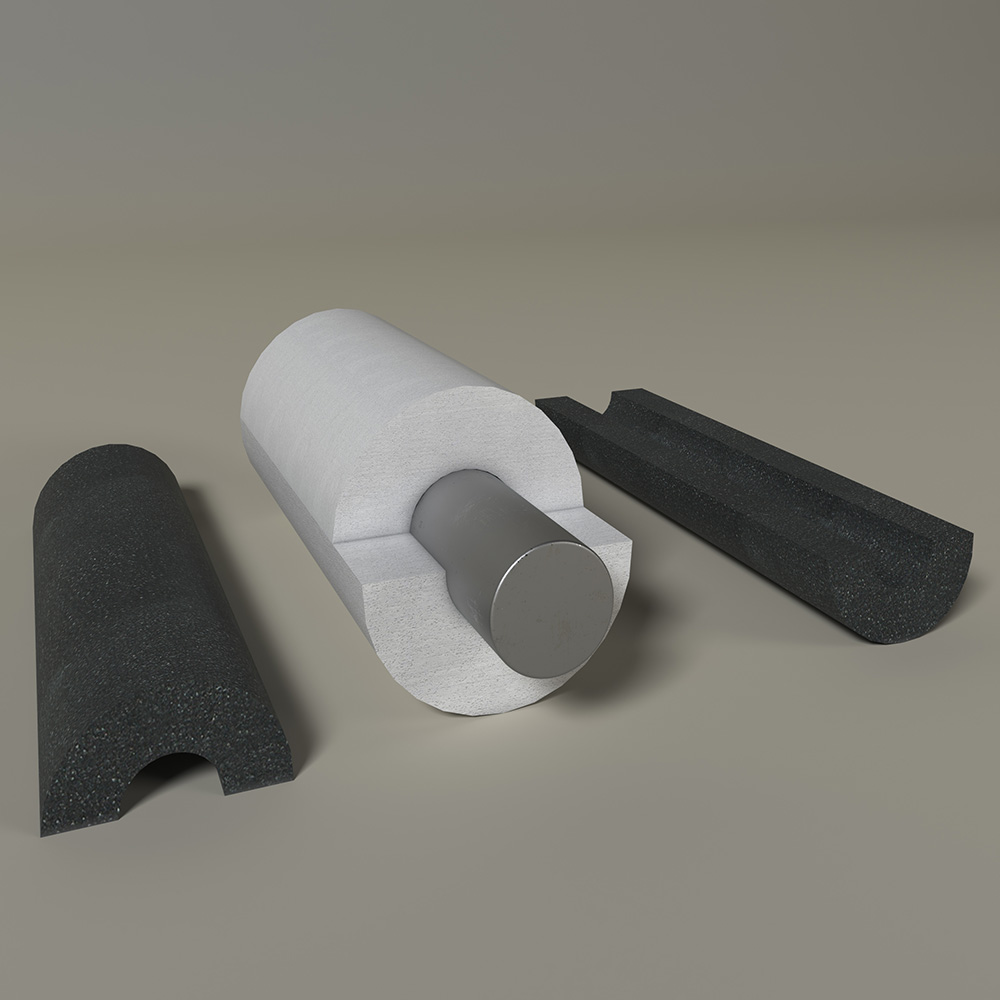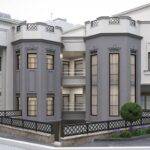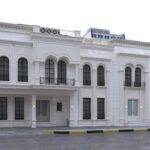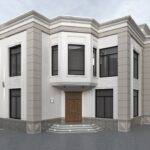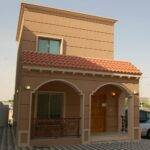Description
Description
Plastbau EPS (foam) Pipe Insulation is a type of insulation material that is often used to insulate pipes and protect them from extreme temperatures. It helps to keep hot or cold water temperatures stable, prevent condensation and reduce energy loss, and can also help to reduce noise pollution.
Plastbau EPS (foam) Pipe Insulation is made from a foam material that is highly efficient at trapping air. This trapped air acts as an effective insulating barrier, preventing heat from moving in or out of the pipe. This helps to maintain the temperature inside the pipe, as well as reducing energy loss, which can potentially save money on energy costs. Additionally, the insulating properties of EPS can help to reduce noise pollution, as it absorbs and dampens sound.
Insulation is like a blanket for the pipes, keeping them warm in the winter and cool in the summer. This helps keep energy costs down and prevents unnecessary wear and tear on the pipes, preserving them safe and functioning for longer. With proper maintenance, the average lifespan of insulated pipes is 10 years or more.
For instance, the EPS pipe insulation used in HVAC systems is made of expanded polystyrene, which is lightweight and easy to install, making it an ideal choice for a variety of insulation needs in both the commercial and residential sectors. EPS Pipe Insulation can be used to insulate hot water pipes, helping to maintain consistent water temperatures, and reducing the energy demands of water heating. On the other hand, it can help to prevent frozen pipes during cold winter months, avoiding costly repairs from burst pipes.
BENEFITS OF PLASTBAU ® PIPE INSULATION:
- •Maintain the temperature of fluids running through pipes by keeping pipes at a stable temperature and preventing heat loss or gain.
- •Reduce energy costs by minimizing the need for heating or cooling.
- •Decrease noise pollution since it acts as a sound absorber.
- •Reduce condensation build-up, which can lead to water damage, mold, corrosion, and other issues.
- •Minimize the effects of temperature changes on the expansion and contraction of pipes.
- •Protect against burns caused by extremely hot/cold pipe surfaces.
- •Reduce fire risks which can aid in the prevention of fires caused by heat or sparks.
- •Maximize the return on investment (ROI) since it is lightweight, durable, easy to install, and cost-effective.
- •Protect the environment as it is non-toxic and eco-friendly, making it a great choice for environmentally conscious consumers
HOW TO ORDER?
Plastbau Arabia’s team will assist you in choosing the suitable EPS Pipe Insulation for your unique application. The following types of information may be requested:
- • The nominal outer diameter of the pipe.
- • The thickness of EPS pipe insulation.
- • The density of EPS pipe insulation.
- • Measurement of the project’s quantity in longitudinal meters.
- • Are there shiplap joints, tongue & groove joints, or no joints?
HOW TO INSTALL PLASTBAU ® PIPE INSULATION?
Once the EPS pipe insulation with the correct size and density is purchased, it is essential to install the insulation properly. This can be done by cutting the insulation to fit the circumference of the pipe and then wrapping it around the pipe. It is important to make sure that the insulation is tight and secure.
Additionally, it is important to seal any seams or gaps in the insulation with tape to prevent air or moisture from entering. Once the insulation is installed, it is important to check that it is secure and that there are no gaps or seams that need to be sealed.
WHAT MATERIALS ARE NEEDED FOR INSTALLING PLASTBAU®
PIPE INSULATION?
In addition to purchasing the correct size and density of EPS pipe insulation, it is also necessary to have the proper tools and materials on hand for installation. An adhesive tape, a measuring tape, and a utility knife are some required materials.
It is also essential to have safety goggles and gloves in order to protect the eyes and hands from any sharp edges or pieces of insulation. Additionally, it is important to have a ladder or step stool to reach higher pipes.

